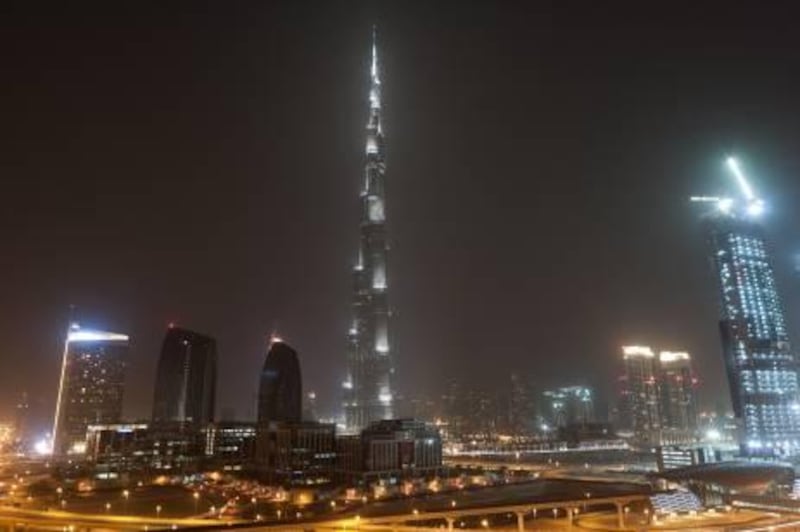ABU DHABI // Businesses switched off lights and generated electricity via stationary cycles last night during a campaign aimed at increasing awareness of climate change.
The effort was part of a global initiative, endorsed in the UAE by the Emirates Wildlife Society-World Wide Fund for Nature, to save energy and spread awareness about environmental issues.
The foundation had asked individuals, governments and businesses to take part by turning off lights for one hour starting at 8.30pm.
Businesses said they heeded the call as part of their commitment to the welfare of the community.
Abu Dhabi Airports dimmed, or switched off, non-essential lighting on runways and in terminal buildings and management offices. At the airport, a presentation entitled Environmental Awareness: Going Beyond Earth Hour was delivered by Sheikh Abdulaziz bin Ali Al Nuaimi, also known as the "Green Sheikh", the environmental adviser to the Government of Ajman.
Abu Dhabi Airports organised an art competition for children to emphasise the importance of conserving scarce natural resources.
The company said its 2011 environmental initiatives included educating staff on energy and waste management practices, and setting a target of recycling 25 per cent of waste from airports by the end of the year.
At the Fairmont Bab al Bahr, staff including the general manager, and guests cycled for 24 hours to generate clean, renewable energy using two stationary bicycles which were linked to a dynamo. The effort began at 10.30am and will end at 10.30am today, symbolically covering every time zone in the world.
The energy created was used to operate projectors to show two films about the environment: the Oscar award-winning documentary on global warming An Inconvenient Truth, and the feature-length documentary The 11th Hour.
The cycling workload was shared among members of the hotel team, guests, dignitaries and the community. The hotel's restaurants also turned off non-essential lights, offering candlelit dinners for guests. And a monetary contribution from each meal bill was donated to the WWF to support various projects, including sea turtle conservation and the "Choose Wisely" campaign for endangered marine life.
The One restaurant and furniture shop switched off the logo outside the store and shut down staff computers for an hour. The staff also turned off non-essential lighting in the restaurants.
"Our customers are aware of this so they were very accommodating and supportive," said Clare Andow, the store manager.
Mrs Andow said the effort was part of the company's general social responsibility policy, which included recycling, reducing fuel use by delivering to all customers who live in one area at the same time and using environmentally friendly lighting.
The company, she said, was also studying the possibility of using information technology equipment that is environmentally friendly.





